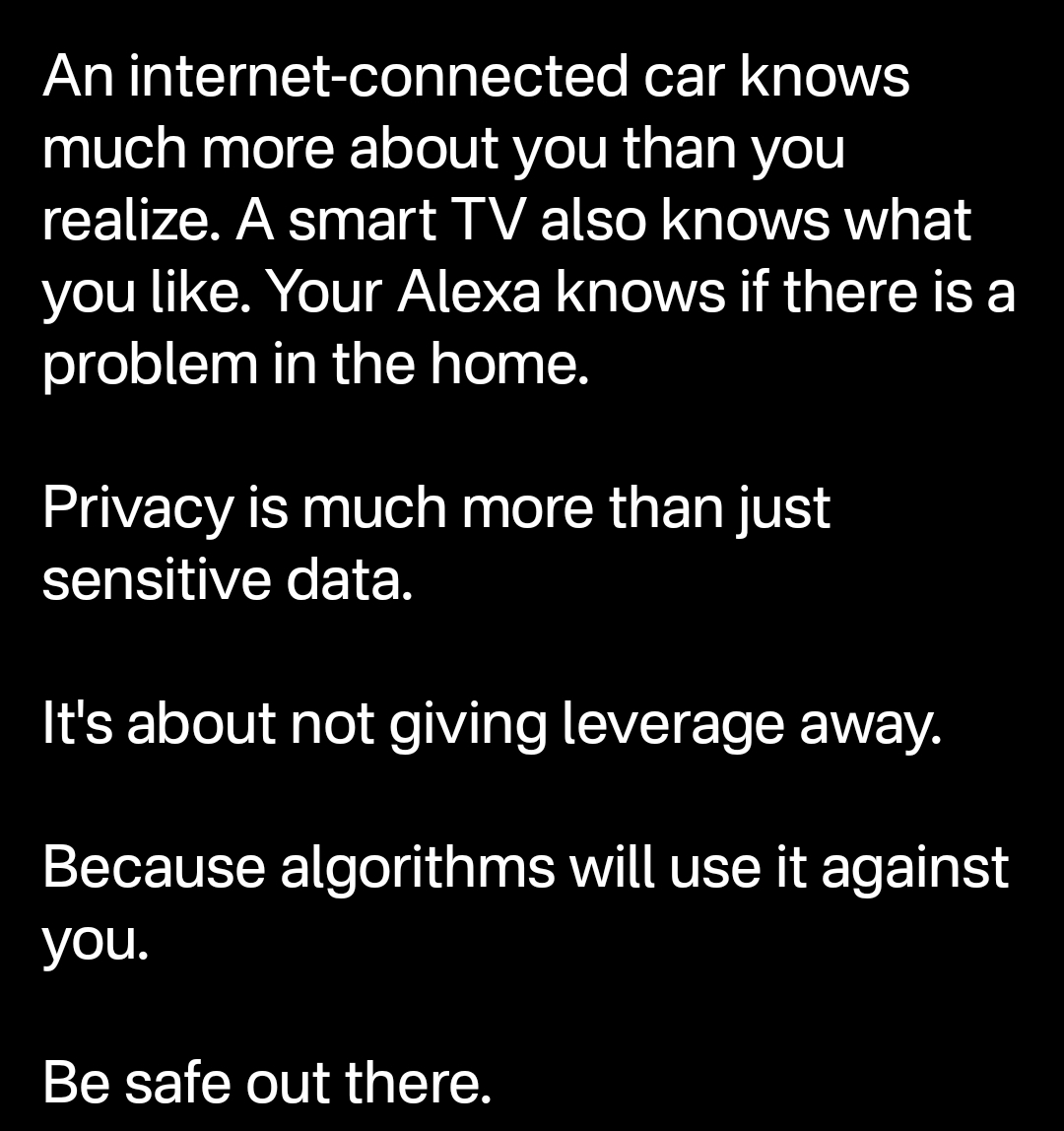
post text
Picture this:
- You type on Google “laptop won’t turn on”
- Google now knows you have a broken laptop and can estimate how desperate you are to fix it.
- Because it knows how desperate you are, it can increase shop prices proportionally.
You are going to pay the maximum they get you to pay.
That’s algorithmic pricing.
The more companies know about you, the more they can predict and sell how desperate you are to other stores out there.
An internet-connected car knows much more about you than you realize. A smart TV also knows what you like. Your Alexa knows if there is a problem in the home.
Privacy is much more than just sensitive data.
It’s about not giving leverage away.
Because algorithms will use it against you.
Be safe out there.

This post is posed as the next big step in internet pricing, not something necessarily happening today.
Today, it’s not standard procedure outside of some specific segments (that I know of, maybe airfare? But the data fed in is more limited) but tapping into the vast amounts of data we leak through the services we use is far too big of a gold mine for companies to overlook researching and tapping into. There’s a lot of things that need to happen (who supplies data? Google is the hypothetical here but what’s their price? etc.) but it’s absolutely feasible at scale.
It does happen today though. The price for things on Amazon is unique to you and constantly changes.
Hotel and air ticket booking are like this already
Good point, i totally misunderstood the “picture this” lead in. Yeah it’s a completely feasible situation though it does seem extreme.